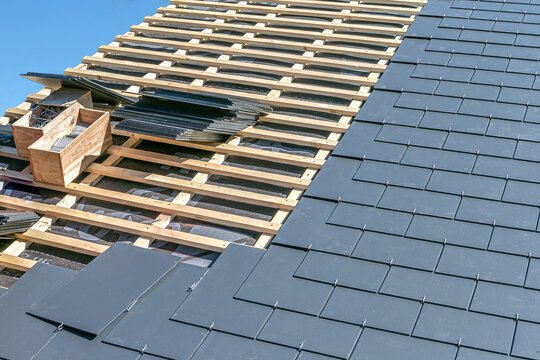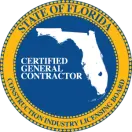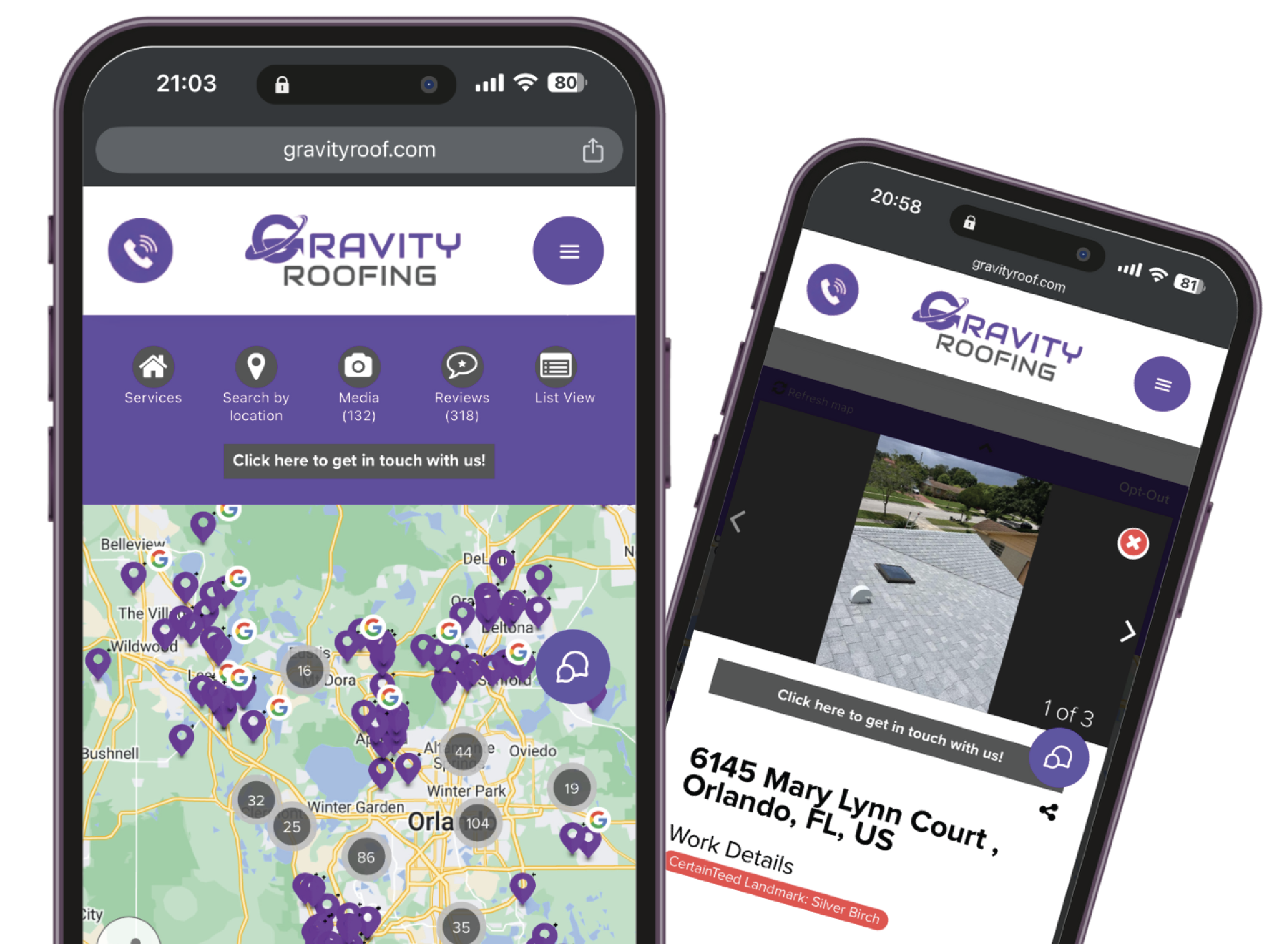When it comes to roofing insurance, the terms replacement cost and actual cash value (ACV) play a major role in how much you’re reimbursed for a roof claim. However, many homeowners don’t fully understand the difference between the two until they’re dealing with storm damage or leaks and trying to file a claim. If you’ve ever wondered why your insurance payout was lower than expected or what coverage is best for your roofing investment, this blog post is for you.
In this article, we’ll break down roof replacement cost vs actual cash value, explain key roofing insurance terms, and help you make informed decisions when selecting a policy or filing a claim.
The Basics: What Is Roof Replacement Cost?
Replacement cost roofing insurance refers to the amount of money your insurance company would pay to replace your damaged roof with a brand-new one of similar kind and quality, without deducting for depreciation.
For example, if a windstorm damages your roof and your coverage includes replacement cost, your insurer will reimburse you for the full cost of a new roof, minus your deductible. This ensures you get a new roof installed without incurring significant out-of-pocket expenses, assuming your policy covers the damage.
This type of coverage is ideal for homeowners who want complete protection and peace of mind. However, premiums for replacement cost coverage tend to be higher than those for actual cash value policies.
What Does Actual Cash Value (ACV) Mean in Roofing Insurance?
Actual cash value is the depreciated value of your roof at the time of the damage. In simple terms, it’s the replacement cost minus depreciation based on the roof’s age, condition, and life expectancy.
So if your 20-year asphalt shingle roof is 15 years old when hail hits it, your insurance provider will only pay you the depreciated amount—which could be significantly less than what you need to install a new roof.
In an actual cash value roof claim, the homeowner is responsible for covering the cost difference between the depreciated amount and the total replacement cost. While ACV policies have lower premiums, they often result in larger out-of-pocket expenses when disaster strikes.
ACV vs. RCV: Understanding the Key Differences
To further clarify the replacement cost value vs. ACV debate, let’s compare the two side-by-side:
- RCV (Replacement Cost Value) pays for a new roof of similar kind and quality.
- ACV (Actual Cash Value) pays for the current value of your old roof, accounting for wear and age.
Here’s a real-world example:
Let’s say your roof is damaged and the cost of a new roof is $15,000.
- If your policy is RCV, your insurance may pay up to $15,000 (minus your deductible).
- If your policy is ACV, and your roof is depreciated by 60%, you might receive only $6,000 (also minus your deductible).
That’s a huge difference in coverage and reimbursement—making it essential for homeowners to understand roof insurance coverage options before choosing a policy.
Roof Insurance Terms Explained: What Every Homeowner Should Know
When reading your insurance policy, it’s easy to get overwhelmed by industry jargon. Let’s clarify a few roofing insurance terms for homeowners that you’re likely to encounter:
- Deductible: The amount you’re responsible for paying out-of-pocket before insurance kicks in.
- Depreciation: The reduction in value of your roof due to age and wear over time.
- Named Perils: Specific events (like hail or fire) covered by your insurance policy.
- Exclusions: Events or types of damage not covered by your policy.
- Claim Settlement: The process through which the insurance company evaluates and pays out your claim.
Having a clear grasp of these terms will empower you during the roof claim settlement process and help you advocate for fair compensation.
How ACV Depreciation Affects Your Roof Insurance Payout
ACV depreciation for roof insurance is one of the most frustrating aspects for homeowners. Imagine paying insurance premiums for years, only to find out your payout won’t cover the full cost of roof replacement due to depreciation.
Depreciation is calculated based on your roof’s material and age. For instance:
- Asphalt shingles might depreciate 5% per year.
- Metal or tile roofs may depreciate slower due to their longer life span.
This means that even if your roof is still functional, its value on paper may be drastically reduced. Unfortunately, this often results in underfunded repairs unless you’re prepared to cover the difference.
Understanding the Roof Insurance Claim Process
Filing a roof insurance claim isn’t always straightforward. Understanding the roof claim settlement process can help streamline your experience and prevent costly delays.
Here’s a basic overview:
- Inspect and document the damage (photos/videos).
- Contact your insurance company to start the claim.
- Schedule an inspection with your adjuster.
- Receive the settlement offer (based on ACV or RCV).
- Hire a licensed roofing contractor to begin repairs.
- Submit invoices if your policy requires proof of completed work to release withheld depreciation (common in RCV).
A common issue arises when homeowners don’t fully understand whether their payout is based on ACV or replacement cost, leading to confusion or disappointment.
Choosing the Right Coverage: ACV vs. RCV for Your Home
When comparing ACV vs. RCV roof insurance, the right choice depends on your goals, risk tolerance, and budget.
- Choose replacement cost coverage if:
- You want full protection.
- You live in a storm-prone area (like Florida).
- You want to avoid paying large out-of-pocket expenses.
- You want full protection.
- Choose actual cash value coverage if:
- You’re looking for lower premiums.
- Your roof is already older and nearing the end of its lifespan.
- You’re prepared to cover replacement costs yourself.
- You’re looking for lower premiums.
For homeowners in Florida—where storms, hurricanes, and high humidity are common—replacement cost coverage offers significant peace of mind. At Gravity Roofing, we often advise clients to opt for RCV if it fits their budget.
Why Roof Insurance Coverage Choices Matter More Than Ever
In recent years, insurance providers have become stricter in their evaluations of roof damage claims. They may scrutinize:
- The age of your roof
- Pre-existing conditions
- Whether your damage was from a named peril
- The type of material your roof is made from
All these factors influence your final roof insurance payout methods and the likelihood of claim approval. That’s why it’s critical to understand your policy details well before you ever need to use it.
Final Thoughts: Protect Your Home With the Right Roofing Insurance Knowledge
Navigating roofing insurance isn’t just about understanding what your policy covers—it’s about maximizing your protection and minimizing surprises when something goes wrong. The difference between replacement cost roofing insurance and actual cash value roof claims can mean thousands of dollars in your pocket—or out of it.
Before renewing or choosing a new policy, take time to:
- Review your roof’s current condition
- Compare ACV vs. RCV coverage
- Speak to a professional roofer who understands insurance policies
The more informed you are, the better decisions you’ll make for your home and family.
Need Help Navigating a Roof Insurance Claim? Contact Gravity Roofing
Whether you’re facing a storm-damaged roof or simply want a professional inspection to support your insurance claim, Gravity Roofing is here to help. Our experienced team works hand-in-hand with homeowners and insurance companies to ensure a smooth, transparent, and fair process.
Don’t leave your roof to chance—contact Gravity Roofing today for a free consultation and protect your investment with confidence.














